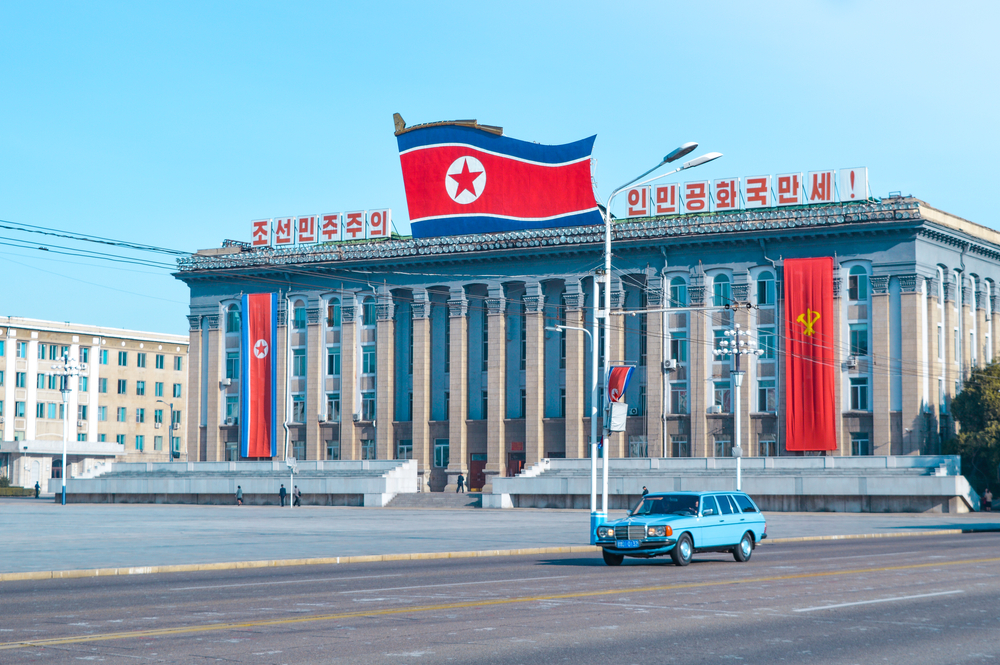North Korea test-fired an intercontinental ballistic missile (ICBM) on Thursday, showcasing what appears to be an advanced step in its long-range nuclear capabilities. The launch, which marks the first ICBM test in almost a year, coincides with escalating tensions in East Asia and growing military cooperation between North Korea and Russia. Experts speculate that the timing of the launch, days before the U.S. presidential election, could be intended to signal North Korea’s willingness to assert its military strength amid international condemnation over its support for Russia’s war in Ukraine.
North Korea’s ICBM Capabilities on Display
North Korean leader Kim Jong Un observed the launch, reportedly calling it “an appropriate military action” to affirm North Korea’s defensive resolve. According to North Korean state media, Kim stated that recent “adventuristic military maneuvers” by its adversaries underscored the critical role of the nation’s nuclear arsenal. Despite assurances from Washington and Seoul that they have no intention of attacking North Korea, Pyongyang claims it must continue strengthening its nuclear capabilities to counter U.S.-South Korean military drills.
South Korean and Japanese authorities tracked the missile, noting that its 86-minute flight duration and maximum altitude of over 7,000 kilometers (4,350 miles) surpassed North Korea’s previous ICBM test metrics. The missile’s longer range and higher altitude suggest enhanced engine thrust, which may allow it to carry larger warheads, according to analysts like Jung Chang Wook of the Korea Defense Study Forum in Seoul.
Possible Russian Involvement in North Korea’s Missile Technology
Recent intelligence hints at a deepening military relationship between North Korea and Russia. Some experts, including Lee Choon Geun from South Korea’s Science and Technology Policy Institute, suspect that North Korea’s ICBM improvements might reflect technological support from Russia. North Korean troops were reportedly seen in Russia, possibly as part of an alleged military cooperation deal. U.S. Defense Secretary Lloyd Austin recently confirmed North Korean troops in Russian uniforms were moving toward Ukraine, calling this a destabilizing escalation.
Analysts suggest that Russian experts may have provided advice or components for North Korea’s missile technology. The ICBM’s improved thrust and solid-fuel components may point to new propulsion advancements likely achieved with external support. Solid-fuel missiles are advantageous due to their mobility and readiness, allowing quicker launches than traditional liquid-fuel ICBMs.
International Condemnation and Heightened Tensions
The U.S., South Korea, and Japan swiftly condemned North Korea’s missile launch, issuing a joint statement that called it a “flagrant violation” of U.N. Security Council resolutions. South Korean military officials confirmed that the missile was likely launched from a 12-axle vehicle, the country’s largest mobile platform. This new vehicle, revealed by North Korea in September, has raised concerns that Pyongyang may be developing an ICBM larger than any in its existing arsenal.
Following the launch, U.N. Secretary-General Antonio Guterres reiterated his call for de-escalation on the Korean Peninsula. He urged North Korea to halt its provocations and encouraged diplomatic engagement, stating that dialogue remains the only path to sustainable peace and denuclearization in the region.
North Korea’s Escalating Role in Russia’s War Effort
North Korea’s potential involvement in Russia’s military operations marks a significant shift. South Korean intelligence agencies recently reported that North Korea has likely completed preparations for a seventh nuclear test, further raising concerns about its growing nuclear and missile capabilities. North Korea’s arms shipments, including artillery and missiles, are believed to replenish Russia’s diminishing stockpiles, bolstering Moscow’s war efforts.
Kim Jong Un may be aiming to strengthen his defense program through Russian cooperation. Besides advancements in nuclear and missile technologies, experts speculate that Kim could seek Russian support for developing a space-based surveillance system and modernizing North Korea’s conventional weapons. Additionally, North Korea may stand to gain financially if Russia compensates its troops stationed in Russia for an extended period.
North Korea’s recent ICBM test signals a significant step in its weapons program and highlights its alignment with Russia, further complicating geopolitical stability in East Asia. With intelligence suggesting Russian support for Pyongyang’s missile ambitions, the international community faces new challenges in curbing North Korea’s nuclear advancements. As the U.S., South Korea, and Japan reinforce diplomatic efforts, the unfolding relationship between North Korea and Russia underscores the evolving nature of global security concerns.







